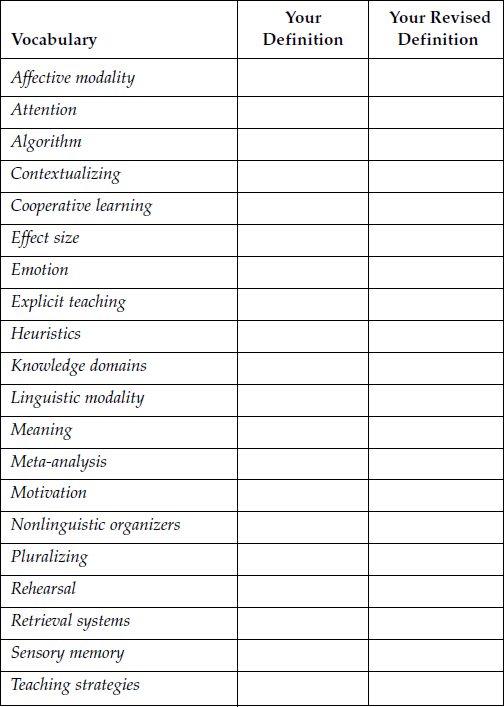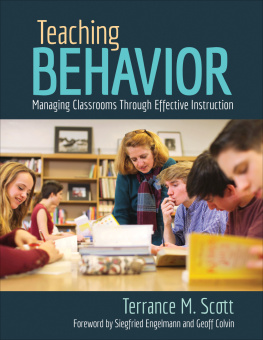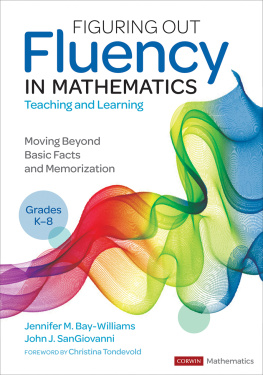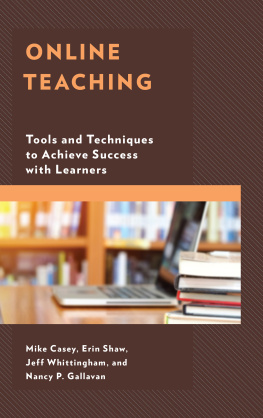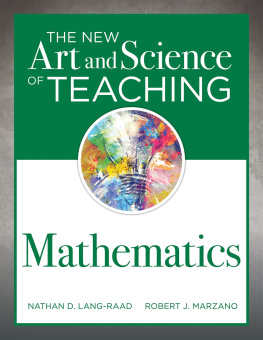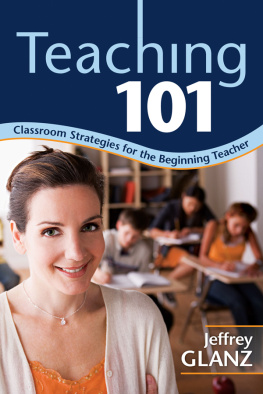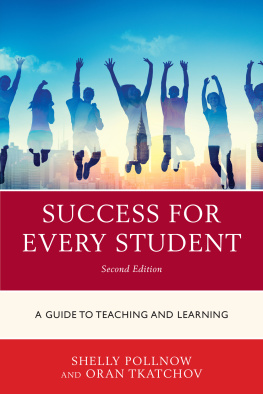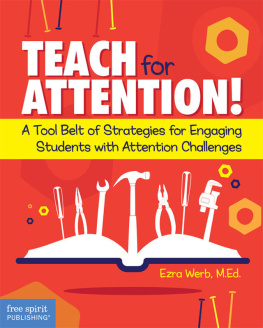What Every Teacher Should Know About...
What Every Teacher Should Know About
Diverse Learners
What Every Teacher Should Know About
Student Motivation
What Every Teacher Should Know About
Learning, Memory, and the Brain
What Every Teacher Should Know About
Instructional Planning
What Every Teacher Should Know About
Effective Teaching Strategies
What Every Teacher Should Know About
Classroom Management and Discipline
What Every Teacher Should Know About
Student Assessment
What Every Teacher Should Know About
Special Learners
What Every Teacher Should Know About
Media and Technology
What Every Teacher Should Know About
The Profession and Politics of Teaching

Copyright 2004 by Corwin Press
All rights reserved. When forms and sample documents are included, their use is authorized only by educators, local school sites, and/or noncommercial entities who have purchased the book. Except for that usage, no part of this book may be reproduced or utilized in any form or by any means, electronic or mechanical, including photocopying, recording, or by any information storage and retrieval system, without permission in writing from the publisher.

For information:

Corwin Press
A Sage Publications Company
2455 Teller Road
Thousand Oaks, California 91320
www.corwinpress.com
Sage Publications Ltd.
6 Bonhill Street
London EC2A 4PU
United Kingdom
Sage Publications India Pvt. Ltd.
B-42, Panchsheel Enclave
Post Box 4109
New Delhi 110 017 India
Printed in the United States of America
Library of Congress Cataloging-in-Publication Data
Tileston, Donna Walker.
What every teacher should know about effective teaching strategies /
Donna Walker Tileston.
p. cm. (What every teacher should know about; 5)
Includes bibliographical references and index.
ISBN 0-7619-3121-X (pbk.)
1. Effective teaching. I. Title. II. Series.
LB1025.3.T55 2004
371.102dc21 2003012383
This book is printed on acid-free paper.
03 04 05 06 07 10 9 8 7 6 5 4 3 2 1

| Acquisitions Editor: | Faye Zucker |
| Editorial Assistant: | Stacy Wagner |
| Production Editor: | Diane S. Foster |
| Copy Editor: | Kristin Bergstad |
| Typesetter: | C&M Digitals (P) Ltd. |
| Proofreader: | Mary Meagher |
| Indexer: | Will Ragsdale |
| Cover Designer: | Tracy E. Miller |
| Production Artist: | Lisa Miller |
About the
Author
Donna Walker Tileston, Ed.D., is a veteran teacher of 27 years and the president of Strategic Teaching and Learning, a consulting firm that provides services to schools throughout the United States and Canada. Also an author, Donnas publications include Strategies for Teaching Differently: On the Block or Not (Corwin Press, 1998), Innovative Strategies of the Block Schedule (Bureau of Education and Research [BER], 1999), and Ten Best Teaching Practices: How Brain Research, Learning Styles, and Standards Define Teaching Competencies (Corwin Press, 2000), which has been on Corwins best-seller list since its first year in print.
Donna received her B.A. from the University of North Texas, her M.A. from East Texas State University, and her Ed.D. from Texas A & M University-Commerce. She may be reached at .
M y sincere thanks go to my Acquisitions Editor, Faye Zucker, for her faith in education and what this information can do to help all children be successful. Without Faye, these books would not have been possible.
I had the best team of editors around: Diane Foster, Stacy Wagner, and Kris Bergstad. You took my words and you gave them power. Thank you.
Thanks to my wonderful Board Chairman at Strategic Teaching and Learning, Dulany Howland: Thank you for sticking with me in the good times and the tough spots. Your expertise and friendship have been invaluable.
To my brother, Mark Walker,
who has provided shelter when I needed it,
encouragement on those days when it was important,
and love always.
A s we sit at our desks to plan the lessons for the coming week, we often wish we had a crystal ball in which to see which teaching strategies will have the most impact in making our students successful. What teacher has not wished for that special lesson that will cause students to say, Of course, now I understand! Through both the research completed in the recent past and the tremendous amount of brain research available to us now, we have a much clearer picture of which teaching strategies seem to have the greatest effect on student learning (and some that dont).
Throughout this book, I will identify teaching strategies that are known to improve our students learning and understanding when used in the proper format. These strategies should be in every teachers toolbox because they work with how the brain learns, understands, processes, and recalls both declarative and procedural information. They help students to see, experience, and hear the information clearer and in a sequence that is more brain friendly than some of the tactics we have used in the past. Most important, they are better for students, and that is music to every teachers ears.
One of the most effective ways that we can teach vocabulary to our students is to introduce the vocabulary, have our students provide their own ideas about what the words mean, and then guide them to examine the meanings in context. Form 0.1 provides the vocabulary that will be examined throughout this book. Look at the words to see which ones are familiar and which are not. Write your own definitions in the middle column, and adjust your thinking as your read through this book.
A Vocabulary Pre-Test is also provided for you. After you have read the book, you will be given a post-test and the solutions to the tests. The Vocabulary Summary offers additional information about these words and other terms associated with motivation.
Form 0.1 Vocabulary List for Effective Teaching Strategies

